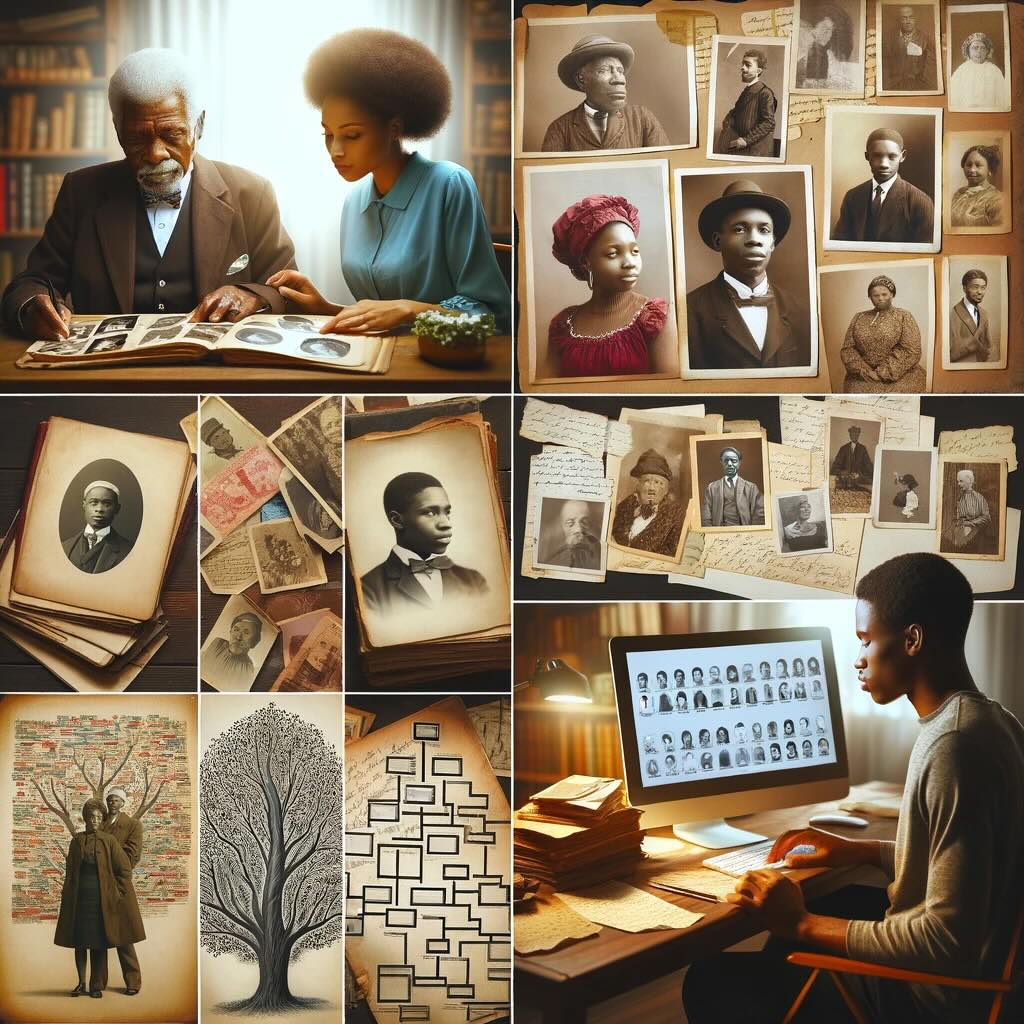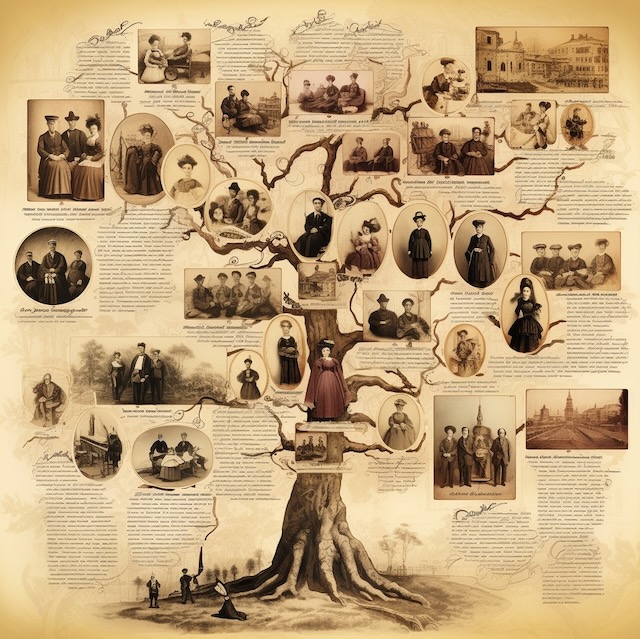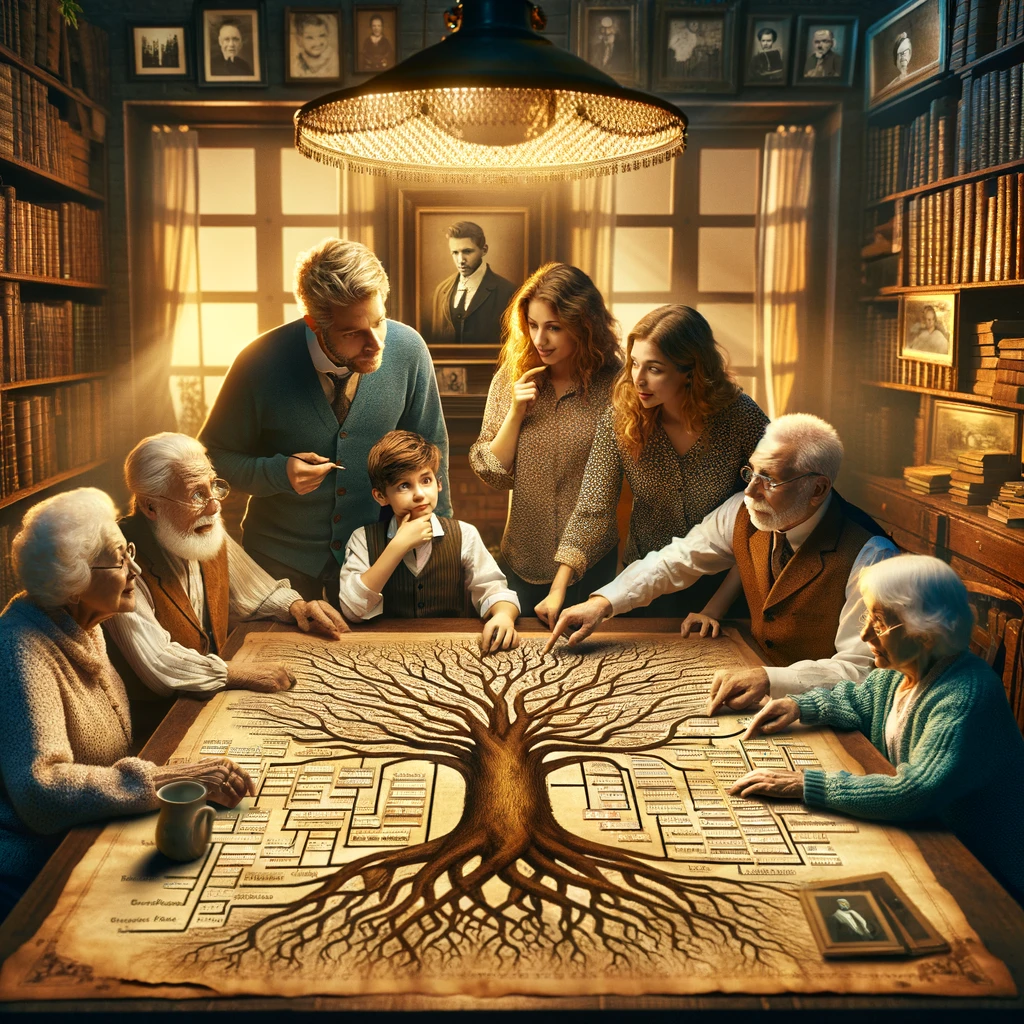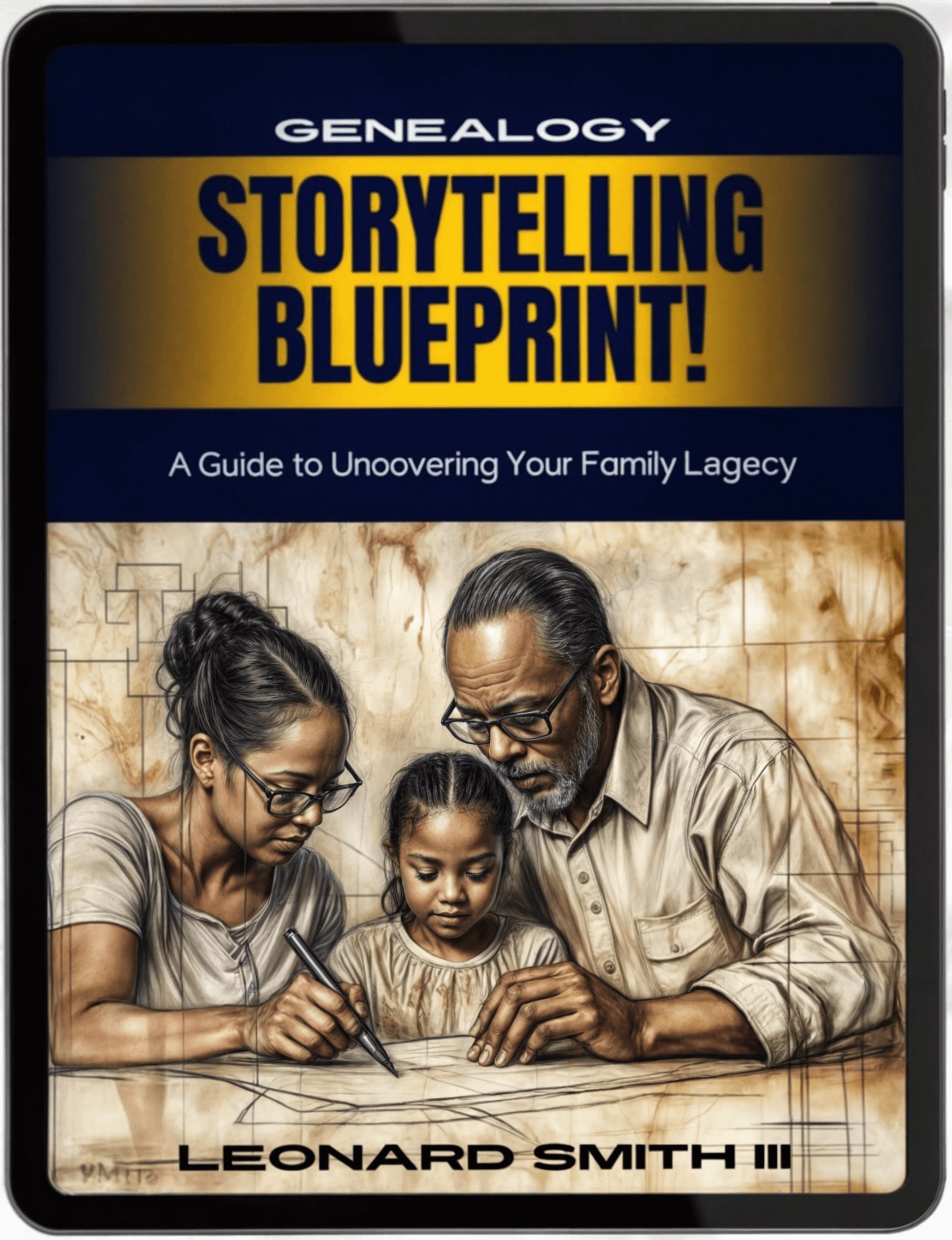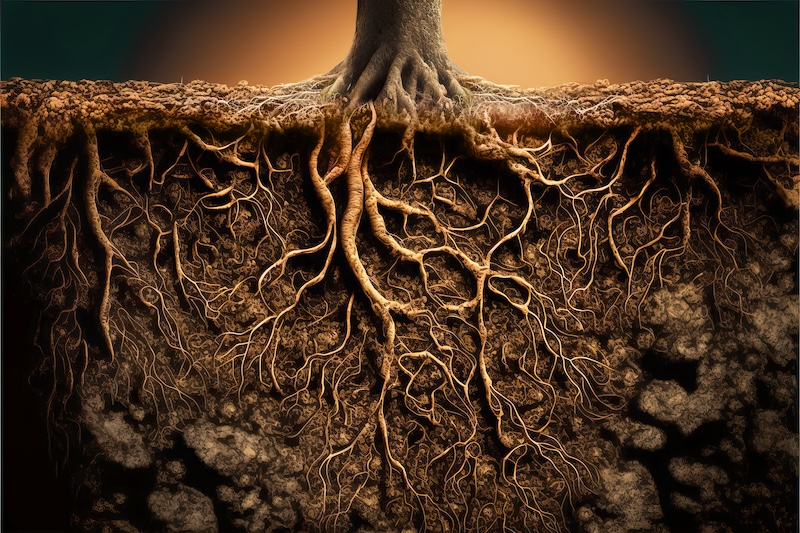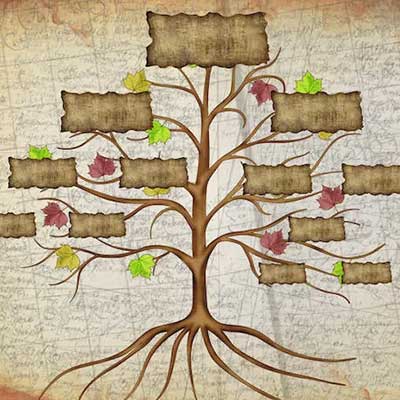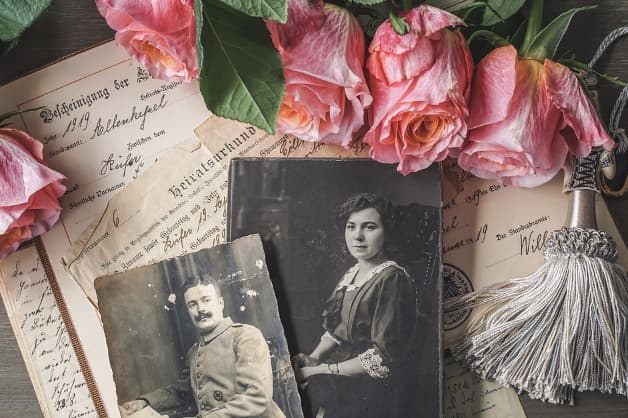- Home
- Family Tree and Family History
- 20 Questions About Family History
20 Questions About Family History: Uncovering Your Ancestral Roots
Dive deep into the heart of your lineage with 20 questions about family history, a comprehensive guide to discovering and appreciating your family's past.
20 Questions About Family History
Introduction to Family History
Understanding the Importance of Knowing Your Roots
The Journey of Discovering Ancestry
Embarking on a journey to uncover your family history is like assembling a unique puzzle, where each piece represents a fragment of your lineage. Understanding your roots does more than fill pages in a family tree; it connects you with your past, influences your present, and shapes your future. This exploration can reveal fascinating stories, illustrate the resilience and courage of your ancestors, and provide valuable insights into your own life.
Starting with Basics:
The Foundation 20 Questions About Family History
Exploring Origins: Where Did Our Family Begin?
Generational Stories: Grandparents and Beyond
The quest into your family history begins with foundational questions. Asking where your family originated opens a path to stories of origins and migrations. Did your ancestors travel across continents or have they always been rooted in the same region? What tales lie in the lives of your grandparents and their forebears? These inquiries form the backbone of your family narrative, setting the stage for a deeper understanding of your heritage.
Cultural Heritage and Traditions
Celebrating Our Ancestors: Cultural Practices in the Family
The Evolution of Family Traditions Through Generations
Culture and traditions are the essence of a family's identity. They are the customs passed down, the celebrations that mark the calendar, and the culinary traditions that flavor family gatherings. Understanding these cultural elements illuminates the uniqueness of your family and showcases how traditions evolve while maintaining the essence of the past.
Significant Life Events in Family History
Milestones That Shaped Our Family
Historical Events Witnessed by Ancestors
Exploring significant life events of your ancestors reveals the milestones that shaped your family's story. Did they experience wars, migrations, or major societal changes? These events offer a macro view of your family's historical place, providing context to their personal stories and resilience.
Family Occupations and Professions
Tracing Professional Footsteps: What Did Our Ancestors Do?
The Impact of Occupations on Family Dynamics
The professions of your forebears can be a window into their lives and the times they lived in. Were they farmers, artisans, or entrepreneurs? Understanding their occupations can shed light on the socio-economic conditions of their era and how these influenced your family dynamics and choices.
Ancestral Homelands and Migration
The Story of Movement: Where Have Our Ancestors Lived?
Understanding the Reasons Behind Migration
The migration stories of your ancestors are chapters of adaptability and courage. Tracing their footsteps across different homelands helps you understand the reasons behind their movements, whether economic opportunities, wars, or the search for a better life.
Family Health History
Health Patterns Through Generations
The Relevance of Knowing Family Health History
Health history in your family can be crucial for understanding genetic conditions and predispositions. Knowing your ancestors' health challenges and conditions can be a vital tool for your health awareness and prevention strategies.
Family Relationships and Dynamics
The Structure of Relationships: Siblings, Cousins, and More
Changing Family Roles Across Generations
Family dynamics, including the roles and relationships among siblings, cousins, and relatives, paint a detailed picture of your family structure. How did these relationships evolve? Understanding these dynamics can reveal patterns and bonds that have shaped your family's social fabric.
Artifacts and Heirlooms
Physical Connections to the Past: Family Heirlooms
The Stories Behind Our Ancestral Possessions
Family heirlooms and artifacts are tangible connections to your ancestors. These items, whether photographs, jewelry, or furniture, carry stories and memories, making the past more relatable and real. Uncovering the stories behind these possessions can be a fascinating aspect of family history research.
Family in Wartime
The Impact of Wars on Family History
Stories of Bravery and Resilience
Wars and conflicts leave indelible marks on families. Investigating how these events impacted your ancestors provides insight into their experiences of bravery, loss, and resilience. These stories often highlight the strength and endurance of the human spirit in the face of adversity.
Discoveries and Surprises in Family Trees
Unraveling the Unexpected in Our Lineage
Making Sense of Surprising Ancestral Connections
Family history research can often lead to unexpected discoveries and surprising connections. Perhaps you'll find a distant relative who made a significant historical contribution or uncover a family secret that reshapes your understanding of your lineage. These revelations add depth and color to your family story.
The Importance of Oral Histories
Preserving Memories Through Storytelling
Techniques for Effective Oral History Gathering
Oral histories are invaluable for preserving family memories and stories that haven't been documented. Learning how to effectively gather these stories through interviews and conversations with older family members can help you capture the essence of your family's past in their own words.
Using Technology to Explore Family History
Digital Tools and Resources for Ancestry Research
Navigating Online Genealogy Platforms
In today's digital age, numerous tools and resources are available to aid in family history research. Online databases, genealogy websites, and DNA testing services have revolutionized how we explore our ancestry, making it easier to uncover and piece together our past.
Challenges in Family History Research
Overcoming Common Obstacles in Ancestry Research
Dealing with Incomplete or Lost Records
Researching family history has its challenges. Incomplete records, elusive ancestors, and dead ends are standard. Learning how to navigate these obstacles and where to look for alternative sources is a key part of the research process.
Family History in Education and Personal Growth
Learning from the Past: Educational Aspects of Family History
Personal Development Through Understanding Ancestry
Exploring family history is not only about the past; it's a journey of personal growth and education. It provides a unique way to learn about history, sociology, and even psychology, offering insights into your identity and place in the world.
Integrating Family History into Modern Life
Keeping Ancestral Stories Alive Today
Balancing Tradition and Contemporary Lifestyles
Integrating the knowledge of your ancestry into your modern life enriches your identity and helps keep your family's legacy alive. Whether through celebrating traditions, storytelling, or simply understanding your roots, embracing your family history enhances your sense of belonging and continuity.
Ethical Considerations in Family History Research
Respecting Privacy and Sensitivities in Ancestry Research
Ethical Dilemmas in Uncovering the Past
Navigating the ethical landscape of family history research is crucial. Respecting the privacy and sensitivities of living relatives and handling delicate discoveries with care are essential aspects of ethical research practices.
The Ongoing Journey of Family History
Embracing Family History as a Continual Exploration
Encouraging Future Generations to Keep the Legacy Alive
The journey of exploring your family history is an ongoing process, a story that continues to unfold with each generation. As you delve into the past, you become a custodian of your family's legacy, responsible for passing down the rich tapestry of your ancestry to future generations.
I hope this article and the 20 questions about family history get you on the right track to record your family stories.
20 Questions About Family History:
Unveiling the Tapestry of Our Past
Family history encompasses more than the names and dates recorded in old documents; it's the story of our ancestors' lives, their experiences, and how they shape who we are today. By exploring 20 questions about family history, we can uncover the rich tapestry of our past and pass on a legacy of knowledge and understanding to future generations.
1. What inspired the start of our family history research?
Exploring the motivations behind family history can reveal a quest for connection, understanding, or preserving family stories for future generations.
2. How do we trace our family tree back to its roots?
This involves gathering records, documents, and oral histories to assemble the lineage and connections between generations.
3. What are the challenges faced in family history research?
From incomplete records to deciphering old handwriting, researchers often encounter numerous obstacles in their quest for knowledge.
4. How has technology impacted family history research?
Digital archives, DNA testing, and online forums have revolutionized how we access and interpret our ancestral past.
5. What role do DNA tests play in uncovering family history?
DNA testing can confirm relationships, discover ethnic backgrounds, and connect distant relatives.
6. How can we preserve and share our family history with others?
Creating digital archives, writing family history books, and sharing stories at family gatherings are effective ways to preserve and share our heritage.
7. What surprising discoveries can emerge from family history research?
Researchers often uncover unexpected connections, hidden stories, and forgotten ancestors.
8. How do family traditions and heirlooms contribute to understanding our ancestors?
Family traditions and heirlooms offer a tangible connection to the past, embodying our ancestors' values, stories, and lives.
9. What can old photographs and letters tell us about our family history?
These personal artifacts provide insights into our ancestors' daily lives, personalities, and relationships.
10. How do historical events shape family history?
Families are influenced by the broader context of historical events, which can dictate migration patterns, occupations, and significant life decisions.
11. What are the benefits of connecting with living relatives for family history research?
Living relatives are invaluable sources of stories, photographs, and documents that can fill gaps in the family tree.
12. How can we accurately document and cite sources in family history research?
Maintaining detailed records and citing sources ensures the accuracy and reliability of family history research for future generations.
13. What ethical considerations must we consider when researching and sharing family history?
Respecting privacy, considering the feelings of family members, and navigating sensitive topics are crucial ethical considerations.
14. How do migration patterns affect family history?
Migration patterns can reveal reasons behind moves, the challenges faced in new lands, and the blending of cultures within families.
15. What insights can we gain from the occupations and professions of our ancestors?
Ancestors' occupations can reflect socioeconomic status, skills, and societal roles, offering a glimpse into their daily lives and societal contributions.
16. How do we deal with conflicting information in family history research?
Evaluating sources, considering the context, and sometimes accepting ambiguity is essential when facing conflicts.
17. What impact does family history research have on personal identity?
Discovering family history can profoundly affect one's sense of self, belonging, and understanding of familial traits and tendencies.
18. How can local and community histories enhance our family history research?
Exploring the local and community contexts where ancestors lived can add depth to their stories and reveal connections to historical events and community networks.
19. What role do genetic health histories play in our lives today?
Genetic health histories can inform individuals about inherited conditions, influencing health decisions and lifestyle choices.
20. How can we ensure the legacy of our family history research is preserved for future generations?
Investing in digital preservation, educating younger family members, and creating engaging family history projects can secure the legacy of our research.
Embarking on a journey of family history research is a profound way to connect with our past, understand our present, and influence our future. By asking these 20 questions about family history, we uncover the stories of our ancestors and ensure that their legacies live on, enriching the lives of generations to come.


